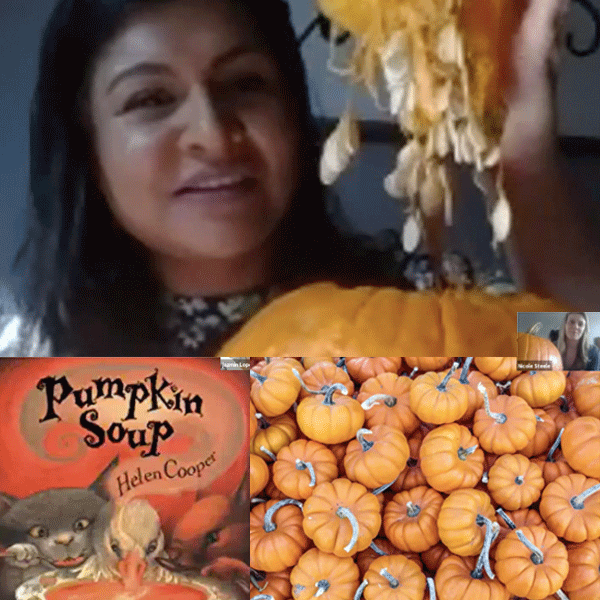#WeAreStillHere

By Pamela Dean
Measuring and weighing pumpkins, making butter in mason jars, understanding flight and engineering by constructing paper airplanes, designing and building catapults, and making collages and binoculars. These were all projects Early Childhood Studies (ECS) students used to provide virtual science, technology, engineering, art and math (STEAM) instruction to 50 community children over the fall semester.
The students were part of ECS Assistant Professor Annie White and Lecturer Lauren Chase’s Creating and Supporting Reciprocal Family Community Networks classes. The course’s purpose is to teach up-and-coming teachers strategies for collaborating and building strong relationships with families, schools and the community.
With virtual learning in full force this fall, White and Chase needed to develop creative ways to give their students the hands-on teacher training experiences the course requires. For help, the pair tapped into CSUCI’s Center for Community Engagement (CCE) which, over the summer, had lined up community agencies interested in partnering with the University on virtual student projects.
“We met with CCE Director Pilar Pacheco to identify the community partners that would be the best fit,” said White. “We discussed the need for resources for children who are experiencing social isolation and distance learning.”
White and Chase decided to partner with the Oxnard Performing Arts Center and the Cabrillo Economic Development Corporation, both of which run educational programs for low-income children.
The pair combined their classes and divided their 50 students into ten groups who provided virtual hands-on STEAM activities and read bilingual books to children ages three to nine over five weeks. Each group had a team leader.
“The team leads demonstrated incredible leadership,” said White. “They created promo videos for the community partners to recruit children, communicated with partners regarding logistics, Zoom recorded the STEAM activities so the community partners could post on their website, and met with me and Lauren to plan and coordinate the weekly activities.”
“The most important lesson I learned from [this] experience is to be flexible,” said ECS major Shannon Warnshuis. “In the beginning of the semester, I did not understand how we would do these activities without being able to see the children in person. Not only did we adapt to make this virtual experience, but I believe we excelled. This was new territory for all of us, and we hit a few bumps along the way, but I think the children enjoyed the experience, and so did we. I was so proud of my fellow Dolphins.”
“The group I worked with came from farm working parents who predominantly spoke Spanish at home,” noted ECS major Valeria Toscano. “I also came from an immigrant farm working family so it meant a lot to me to be able to reach these children because I remember being a child and going to free classes at the library where people would do crafts with us and to this day, I cherish these memories."
White and Chase are appreciative of the support they received that made this undertaking possible.
“This project truly took a village,” White said. “Not only did we apply and receive funds from the CCE to purchase bilingual books and materials for the students to lead the activities, but we were also able to provide materials for the children. The School of Education also helped by purchasing additional materials, such as 50 pumpkins for the first activity.”
The instructors also credit ECS Coordinator Nasha Adorbehi and Academic Senate Coordinator Jeannette Edwards who helped order, purchase, organize and distribute the materials to the community and student team leaders. ECS Department Chair Dr. Mari Riojas-Cortez also helped distribute materials to the community and students.
“We are so grateful to everyone who helped make service learning a priority for our students,” White said. “COVID-19 has created so many challenges, yet the needs of the community are even greater. Our ECS students are working hard to virtually serve our most vulnerable citizens – our local community children.”
